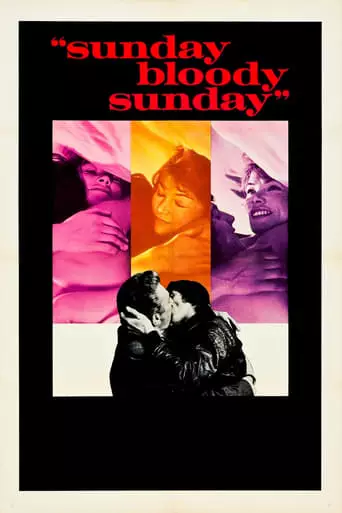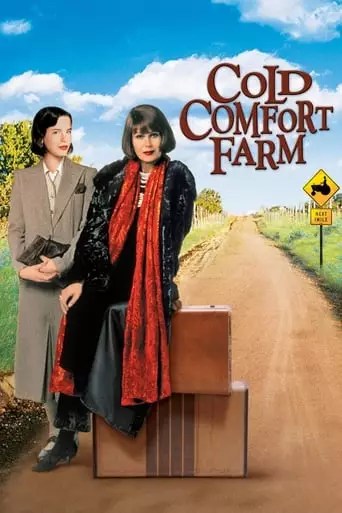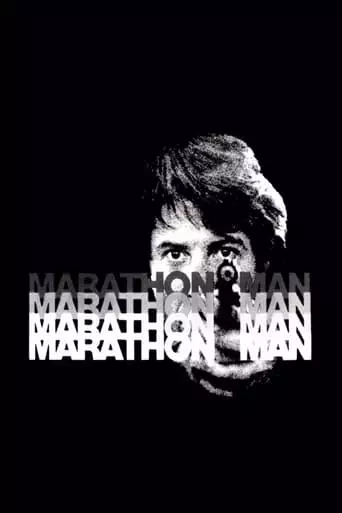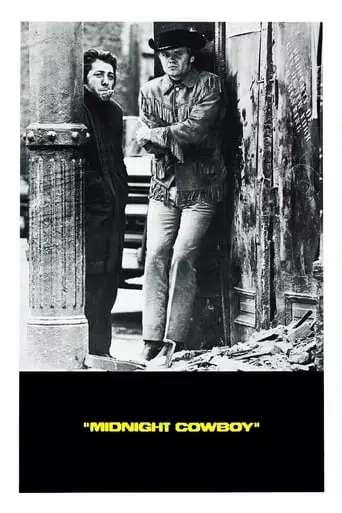Recently divorced career woman Alex Greville begins a romantic relationship with glamorous mod artist Bob Elkin, fully aware that he’s also intimately involved with middle-aged doctor Daniel Hirsh. For both […]

Recently divorced career woman Alex Greville begins a romantic relationship with glamorous mod artist Bob Elkin, fully aware that he’s also intimately involved with middle-aged doctor Daniel Hirsh. For both […]

Hollywood, 1930s. Tod Hackett, a young painter who tries to make his way as an art director in the lurid world of film industry, gets infatuated with his neighbor Faye […]

In this adaptation of the satirical British novel, Flora Poste, a plucky London society girl orphaned at age 19, finds a new home with some rough relatives, the Starkadders of […]

A graduate student and obsessive runner in New York is drawn into a mysterious plot involving his brother, a member of the secretive Division. Marathon Man is a psychological thriller […]

Joe Buck is a wide-eyed hustler from Texas hoping to score big with wealthy New York City women; he finds a companion in Enrico Ratso Rizzo, an ailing swindler with […]
John Schlesinger: A Visionary of British and American Cinema
John Schlesinger was a trailblazing filmmaker whose career spanned over four decades, leaving an indelible mark on both British and American cinema. Known for his unflinching portrayals of human frailty, social change, and moral ambiguity, Schlesinger was a director unafraid to tackle controversial subjects. From the British New Wave classic Billy Liar (1963) to the groundbreaking Oscar-winning Midnight Cowboy (1969), Schlesinger’s films combined emotional depth with sharp social commentary, earning him a place among the most influential directors of his generation.
Early Life and Career Beginnings
John Richard Schlesinger was born on February 16, 1926, in London, England, to a middle-class Jewish family. His father was a physician, and his upbringing in wartime Britain deeply influenced his worldview. After serving in World War II, Schlesinger studied at Balliol College, Oxford, where he developed a passion for acting and directing.
Schlesinger began his career as an actor, appearing in small roles in British films and theater productions. However, he soon shifted his focus to directing, starting with short documentaries for the BBC. His early works, such as Terminus (1961), a documentary about London’s Waterloo Station, showcased his keen observational skills and knack for capturing the nuances of everyday life. Terminus won a BAFTA, setting the stage for Schlesinger’s transition to feature filmmaking.
British New Wave and Early Success
Schlesinger emerged as a key figure in the British New Wave, a movement that sought to bring realism and social issues to the forefront of cinema. His early feature films reflected this ethos, blending character-driven storytelling with incisive social commentary.
A Kind of Loving (1962): Schlesinger’s feature debut, this poignant drama follows a working-class man navigating the complexities of love, marriage, and societal expectations. The film’s unvarnished portrayal of working-class life resonated with audiences and critics alike, earning Schlesinger his first BAFTA for Best Film.
Billy Liar (1963): A bittersweet comedy-drama about a young man (played by Tom Courtenay) who escapes his mundane reality through elaborate fantasies, Billy Liar became a defining film of the British New Wave. Schlesinger’s direction captures both the humor and pathos of its protagonist’s struggles, while Julie Christie’s breakout performance added star power to the film.
Darling (1965): Starring Julie Christie as an ambitious model navigating the hedonistic world of 1960s London, Darling is a scathing critique of modern consumerism and moral decay. The film won three Academy Awards, including Best Actress for Christie and Best Original Screenplay, and cemented Schlesinger’s reputation as a filmmaker of international acclaim.
Hollywood Breakthrough: Midnight Cowboy (1969)
Schlesinger’s move to Hollywood marked a turning point in his career, beginning with the groundbreaking Midnight Cowboy. The film tells the story of Joe Buck (Jon Voight), a naïve Texan who moves to New York City to become a hustler, and his unlikely friendship with the ailing con artist Ratso Rizzo (Dustin Hoffman).
Midnight Cowboy was both a critical and commercial success, becoming the first (and only) X-rated film to win the Academy Award for Best Picture. Schlesinger also received the Oscar for Best Director, solidifying his place as a major force in American cinema. The film’s raw depiction of urban poverty, loneliness, and the fragility of human connection resonated deeply with audiences, and it remains a classic of 20th-century filmmaking.
Diverse and Challenging Works
Throughout the 1970s and 1980s, Schlesinger continued to explore diverse genres and themes, often pushing boundaries and challenging conventions.
Sunday Bloody Sunday (1971): A groundbreaking exploration of bisexuality and unconventional relationships, this intimate drama starred Peter Finch and Glenda Jackson as two people in love with the same man. The film earned Schlesinger another Oscar nomination for Best Director and was praised for its sensitive and nuanced portrayal of sexuality.
The Day of the Locust (1975): An ambitious adaptation of Nathanael West’s novel, this dark, apocalyptic satire of Hollywood’s golden age showcases Schlesinger’s flair for capturing the darker undercurrents of human ambition and despair.
Marathon Man (1976): A tense, psychological thriller starring Dustin Hoffman and Laurence Olivier, Marathon Man is one of Schlesinger’s most commercially successful films. Its famous torture scene and Olivier’s chilling performance as a Nazi war criminal remain iconic.
Later Career and Legacy
While Schlesinger’s later films, such as Pacific Heights (1990) and The Innocent (1993), received mixed reviews, his influence on cinema remained undeniable. He also directed operas and television productions, showcasing his versatility as an artist.
Schlesinger’s work is characterized by its focus on complex characters, moral ambiguity, and a willingness to confront uncomfortable truths. His films often depict outsiders and underdogs, reflecting his empathy for those on the margins of society. His ability to balance intimate, character-driven stories with broader social commentary made him a unique and vital voice in both British and American cinema.
Awards and Recognition
Over his career, Schlesinger received numerous accolades, including:
Academy Award for Best Director (Midnight Cowboy, 1969)
BAFTA Awards for A Kind of Loving and Darling
Palme d’Or nomination at Cannes (Sunday Bloody Sunday)
In 1970, he was appointed Commander of the Order of the British Empire (CBE) for his contributions to the arts.
Conclusion
John Schlesinger was a director of immense talent and vision, whose films continue to resonate for their emotional depth and social relevance. From the gritty realism of A Kind of Loving to the groundbreaking audacity of Midnight Cowboy, his work remains a testament to the power of cinema to illuminate the human condition. As a pioneer of both the British New Wave and modern American cinema, Schlesinger’s legacy endures as one of the most important filmmakers of the 20th century.